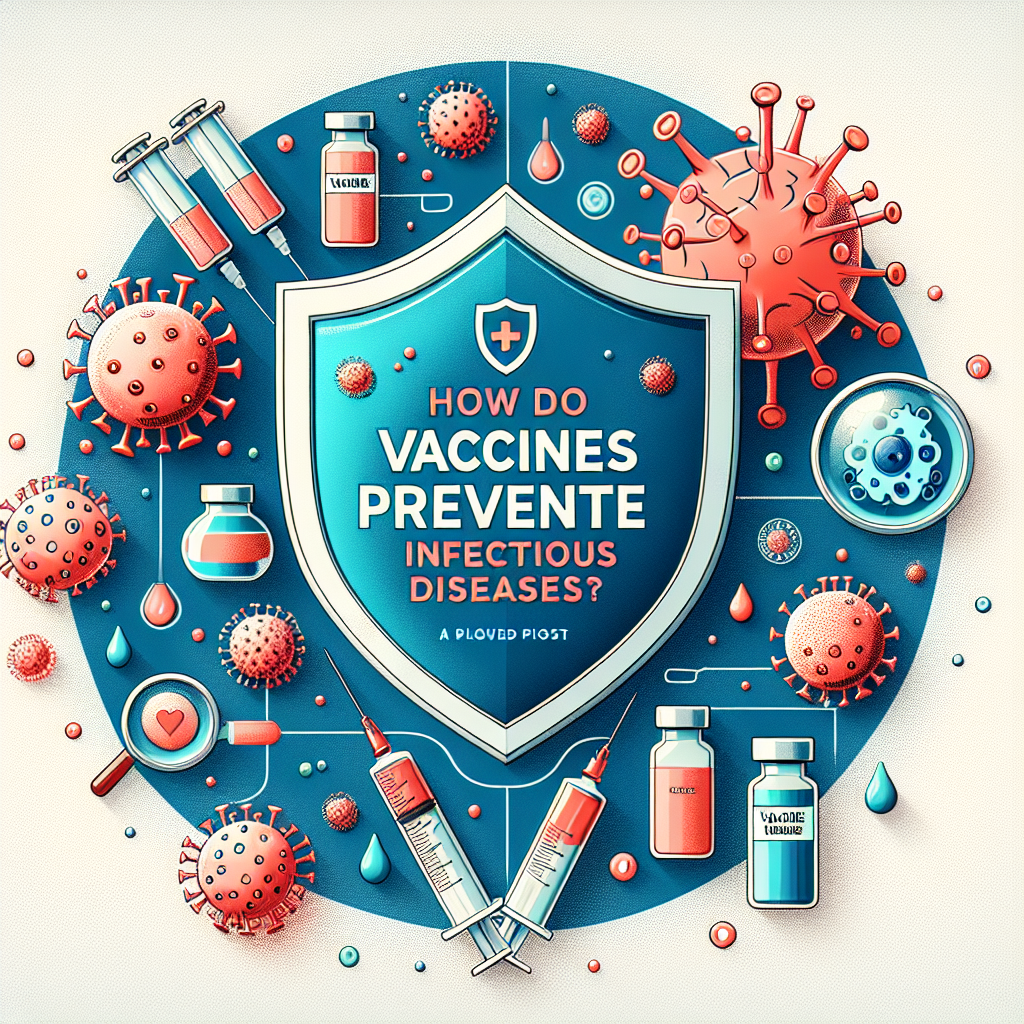Vaccines have been one of the most effective tools in preventing infectious diseases and saving millions of lives worldwide. By stimulating the body’s immune system to recognize and fight off specific pathogens, vaccines provide protection against a wide range of potentially deadly diseases. This article will discuss how vaccines work to prevent infectious diseases and answer some frequently asked questions about immunization.
How does a vaccine work?
Vaccines work by stimulating the immune system to produce antibodies that can recognize and destroy specific pathogens, such as bacteria or viruses. When a person is vaccinated, a small, harmless form of the pathogen, such as a weakened or inactivated virus, is introduced into the body. This stimulates the immune system to produce a defense response without causing the disease itself.
The immune system then remembers the pathogen and produces antibodies that can quickly recognize and destroy it if the person is exposed to the actual virus or bacteria in the future. This creates a state of immunity, where the person is protected from developing the disease even if they come into contact with the pathogen.
Types of vaccines:
There are several types of vaccines that work in different ways to prevent infectious diseases. Some common types of vaccines include:
– Live attenuated vaccines: These vaccines contain a weakened form of the pathogen that is capable of replicating in the body but is not able to cause the disease. Examples include the measles, mumps, and rubella (MMR) vaccine.
– Inactivated vaccines: These vaccines contain the killed form of the pathogen, which cannot replicate in the body. Examples include the polio vaccine.
– Subunit, recombinant, or conjugate vaccines: These vaccines contain only the specific parts of the pathogen that are necessary to stimulate an immune response. Examples include the hepatitis B vaccine.
– mRNA vaccines: These vaccines contain a small piece of genetic material that instructs cells in the body to produce a protein that triggers an immune response. Examples include the COVID-19 vaccines developed by Pfizer-BioNTech and Moderna.
How do vaccines prevent infectious diseases?
Vaccines prevent infectious diseases by providing immunity to the body against specific pathogens. When a person is vaccinated, their immune system is primed to recognize and destroy the pathogen if they are exposed to it in the future. This prevents the pathogen from causing an infection and spreading to others.
Vaccines not only protect the individual who receives them but also contribute to community immunity, also known as herd immunity. When a large enough percentage of the population is vaccinated against a particular disease, it becomes difficult for the pathogen to spread within the community. This protects individuals who are unable to receive vaccines, such as those with weakened immune systems or certain medical conditions, by reducing the overall risk of exposure to the disease.
Frequently Asked Questions about Vaccines:
Q: Are vaccines safe?
A: Yes, vaccines are rigorously tested for safety and effectiveness before they are approved for use by regulatory authorities. Serious side effects from vaccines are rare, and the benefits of vaccination far outweigh the risks.
Q: Can vaccines cause autism?
A: No, there is no scientific evidence to support a link between vaccines and autism. Extensive research has shown that vaccines do not cause autism.
Q: Do vaccines contain harmful ingredients?
A: Vaccines may contain small amounts of harmless ingredients, such as preservatives, stabilizers, and adjuvants, to help enhance the body’s immune response. These ingredients are carefully monitored and regulated for safety.
Q: Is it necessary to vaccinate my child?
A: Vaccination is a crucial way to protect your child from serious and potentially deadly diseases. By getting vaccinated, you not only protect your child but also help prevent the spread of infectious diseases in the community.
Q: Can I get vaccinated if I have allergies?
A: Most people with allergies can safely receive vaccines. However, it is essential to inform your healthcare provider about any allergies you may have before getting vaccinated.
In conclusion, vaccines play a vital role in preventing infectious diseases by stimulating the immune system to recognize and fight off specific pathogens. By creating immunity to a wide range of diseases, vaccines protect individuals and communities from the spread of deadly infections. It is crucial to stay informed about the importance of vaccination and address any concerns or questions you may have about immunization.
